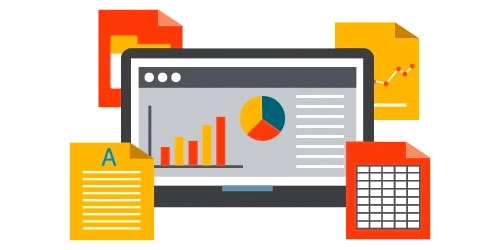Why Metrics Matter

For any company to grow and be successful, you need to be able to make decisions quickly, supported by timely and accurate information. But SaaS companies face additional challenges unique to the industry. You often have to rely on data that is pulled from multiple, disparate sources and then aggregated and analyzed with cumbersome, manual processes such as spreadsheets.
Real-time metrics that go beyond the information you need to satisfy GAAP standards are critical for the success of any SaaS organization. They allow you to make faster decisions based on real-time data while eliminating the errors and inaccuracies that can occur with manual processes.
Is your company identifying and tracking the key metrics that lead to growth and success? For SaaS companies, those metrics often include:
- Churn
- Customer lifetime value
- Customer acquisition cost
- Committed monthly recurring revenue
- Annual or monthly recurring revenue
Changing your metrics as your company changes
How should you decide which metrics to track? Many experts agree that your lifecycle stage is a great place to start, since the data you need, and how you use it, will change depending on where you are. Understanding your stage and how it affects your needs is key to tracking your success. Here are some examples.
Young companies: A SaaS startup needs to address more short-term issues such as attracting customers and beating the competition. So important metrics will include measures like monthly or annual recurring revenue and customer acquisition cost.
Growth companies: A more established company may be focused on rapid growth, so metrics like churn and customer lifetime value become more important.
The importance of various metrics, along with their level of sophistication, will evolve as your company moves through various stages of growth.
Keeping track
In addition to knowing what to track, it’s important to know how to track it. Some SaaS companies use manual processes such as spreadsheet. The down side? Human error, inflexibility, and a lack of compatibility with critical business systems – just to name a few.
Implementing an ERP software solution will make it easier to identify, collect, and manage the data you need for your company to be successful. A good ERP platform will be:
- Cloud-based, for access wherever you are
- Flexible, regardless of the device you’re using
- Easy to integrate with your other key business systems
- Scalable so that it can grow as your company grows
- Affordable, no matter where you are in the business lifecycle
- Customizable to your specific needs
Constant improvement
One of the greatest benefits of using an ERP solution is that it eliminates the time it takes to manually track your key business metrics, freeing you up to focus on the ways your company can succeed and grow. The metrics an ERP provides can be used to identify issues quickly and provide insight into how to resolve them. And you can tailor how you analyze and interpret data to identify which customers or activities are profitable and which are a drain on your resources. This valuable feedback can be used to refine your business strategy.
At MicroAccounting, we’re committed to your success. We’d love to talk to you about how our robust ERP solutions can help you drive improved profitability and growth.




